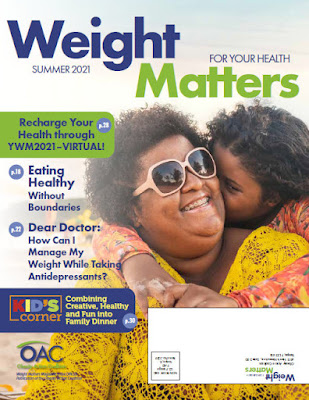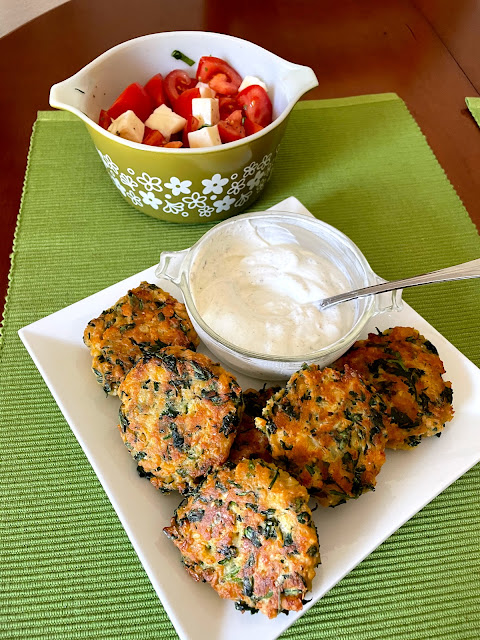Bariatric surgery is a pretty darn effective obesity treatment. Beyond the weight loss, which for many increases their quality of life, multiple long-term studies show bariatric surgery can put type-2 diabetes, sleep apnea, and hypertension (a risk for heart disease and stroke) into remission and reduces the burden or risk of many other obesity-related conditions and diseases including a few cancers. But only 1% of those who would qualify for bariatric surgery have it.
A few thoughts on why and this is by no means an exhaustive list...
Fear of surgery, fear of complications and death. Let's be real. No one looks forward to surgery and this is one we can choose to have (or not.) The whole getting cut open, anesthesia, drains, tubes, pain, and recovery process sounds intimidating.
The facts are the currently used bariatric procedures are pretty darn safe. The rate of serious complications within the first 30 days is between 0.25% and 1.25% and the mortality rate is even lower for the two most popular bariatric surgeries: vertical sleeve gastrectomies (VSG) and gastric bypass (RNY.) To put this in perspective that is a lower rate than most common surgeries (including gall bladder removal, appendectomy, and knee and hip replacement surgery.) Over 90% of bariatric operations are now being performed laparoscopically (a few small incisions) so that really helps lower the complications and speeds up recovery but I had open RNY (non-laparoscopic, one long incision, slower recovery) and it was still only about 2 weeks till I was functioning pretty normally.
I think we tend to dismiss, disregard or probably just grow accustomed to the reality that for many of us obesity and obesity-related illnesses we may be dealing with carry risks of complications and death. Many higher than the risks of surgery. Something to consider when deciding to have surgery or not.
Suggested reading or resource: Look to the science and studies, not your friend at work "who knew someone, who had a friend, whose hairstylist had surgery."
Fear of the unknown, fear of change. Change is scary. I remember thinking "I know what I have to deal with now, I don't know what life is like after." Would I regret having bariatric surgery? How it would change my life? How it might affect my loved ones?
It will change your life and the lives of those you love. Those changes will be positive for the most part, the resolution of health issues and increased quality of life but it is a change. Talk to post-ops 1+ years from surgery and ask them if they regret having surgery and the answer is usually "the only regret is not having it sooner." That being said anytime you make a big life change (think about: moving, relationship changes, babies, jobs, etc.) it takes time to adjust. Those first few weeks post-op when there are lots of instructions to follow, things are different and new, you feel stressed and overwhelmed, for some their comfort/soother in times of stress was food and well that is limited... and add to this scenario that you are healing from surgery... so YES, some people express regret (akin to buyer's remorse) but ask them again in a year and you will more than likely hear the "regret not having it sooner" answer. It took me about 7 weeks or so to feel "new normal" and not like an alien life force dropped onto a new planet. By month 4, I was feeling better than ever. 14 years and still no regrets.
Suggested reading or resource: I highly recommend finding a psychologist who works with bariatric surgery post-ops, sooner rather than later. They can help you navigate the new changes. You can search by zip code in your area with the obesitycareproviders.com locator or ask your bariatric surgeon's office for suggestions. Talk to other post-ops. You can find me online on Instagram, Twitter, Facebook, Pinterest and I am happy to answer any questions or direct you to an answer or resource.
Access issues. Coverage for bariatric surgery is getting better but there should not be a policy allowed that excludes coverage for science-based obesity treatments (behavioral therapy, FDA-approved obesity drugs, and bariatric surgery) yet there are still many that exclude obesity care. It's confusing to even find out if you are covered. I see lots of patients ask on online patient forums if (insert any insurance company) covers bariatric surgery. The answer is: maybe. Most companies cover bariatric surgery, the question is does YOUR policy cover it (think cars: do you have the base model vehicle or the pimped out, top of the line vehicle with all the bells and whistles or something in between) and that is determined by a phone call to your insurance company and a look at your policy documents (policy sections to look for: Evidence of Coverage (EOC) or Certificate of Insurance (COI) or Summary of Benefits and Coverage.)
For those that are covered, it's still a complicated process to get approval, and frankly, health insurance carriers like it that way. Unlike other chronic disease treatments, people with obesity often have hoops to jump through like mandatory waiting periods (3-6 months is common, some even longer), mandatory diets with mandatory weight loss, extra documentation, and extra clearances. These discriminatory hoops are designed to delay and discourage patients, plain and simple and sadly it works. Also as you can imagine all these hoops often mean multiple appointments, time off work for those appointments and tests, travel costs, co-pays, program fees and that is even before the time off for surgery and healing. This is a real barrier that stops people from even considering surgery.
Suggested reading or resource: Obesity Action Coalition (OAC) fights for access to care and an end to weight bias they have a great section on their website about understanding your insurance coverage, appealing denials, sample letters, glossary of terms, etc.
Weight bias and stigma, internalized bias, avoidance of care. Obesity is complex and there are multiple factors some may be controllable (behavioral) and many not so much and certainly not without assistance (biological, genetic, environmental, medications, psychological, socio-economics, health disparities, etc.) but to hear it from society, family, friends, even sadly doctors sometimes... it's all our fault ("just eat less and move more") and so we must solve it ourselves. As you can imagine after years of this messaging people actually can begin to believe it. So much so that some people with obesity look at seeking care and treatment as shirking responsibility or "taking the easy way out."
Obesity is not your fault and you don't have to go it alone. Your health is not a game. You don't get bonus points for going it alone, struggling, or suffering more, you just get less quality of life. If your obesity is affecting your health, there are effective treatments and help. Seek them out.
Another thing I wanted to mention about weight bias is we often have way too many crappy past health care experiences (read one of mine: scroll to Michelle "Shelly") and avoidance of care, in general, is a result. So the idea of a bunch of appointments for months isn't too appealing for many. This is one reason even if covered many don't follow through with the process. Finding good care is key. It is out there. It's worth finding.
If you are a healthcare provider reading: please help patients understand the experience with you and your office will be different. Explain the disease and science of obesity, explain chronic disease management, explain what is in our control and what isn't. Give patients the understanding and support that many have never received. You can make such a difference.
Suggested reading or resource: Stop Weight Bias campaign's section on weight bias in healthcare. Great ConscienHealth blogs on the multiple causes of obesity.
Lack of understanding of obesity and treatments. Most people do believe that eating less and moving more will cure obesity. Doctors (scientists and others) need to take every opportunity to correct that misconception. There is so much more going on and perhaps if the complexity and chronic nature of obesity were shared more people would seek real care for it more readily instead of being prey to the latest diet industry fads and scams "maybe this time this (potion, sketchy pill, tea, DVD, gadget, etc.) will work" instead of seeking out science-based obesity treatments (behavioral therapy, FDA-approved obesity drugs, and bariatric surgery.) People would also understand why something that "worked" for a friend or co-worker or a celebrity on TV doesn't mean it will be the right treatment for them.
I've also heard comments like "why should I have surgery when people just gain it back." First, bariatric surgery benefits are more than weight loss. There is, of course, a lot of weight loss but even after bariatric surgery bathroom scales still go in both directions. Be sure you have realistic expectations of what treatments can and can't do (there is no cure or finish line.) Obesity is a chronic disease and like any chronic disease needs managing for life. I am sure you have heard the saying bariatric surgery is a tool. It is a tool that requires maintenance, taking into the shop for tune-ups and you may need to use a few different tools over time. You get the idea.
Bariatric surgery is not for everyone but right now it is the most effective treatment there is for obesity and if obesity is affecting your health, and you choose to have bariatric surgery I believe it should be accessible without hindrance, stigma, and bias. If you believe that too. Here are ways you can help:







